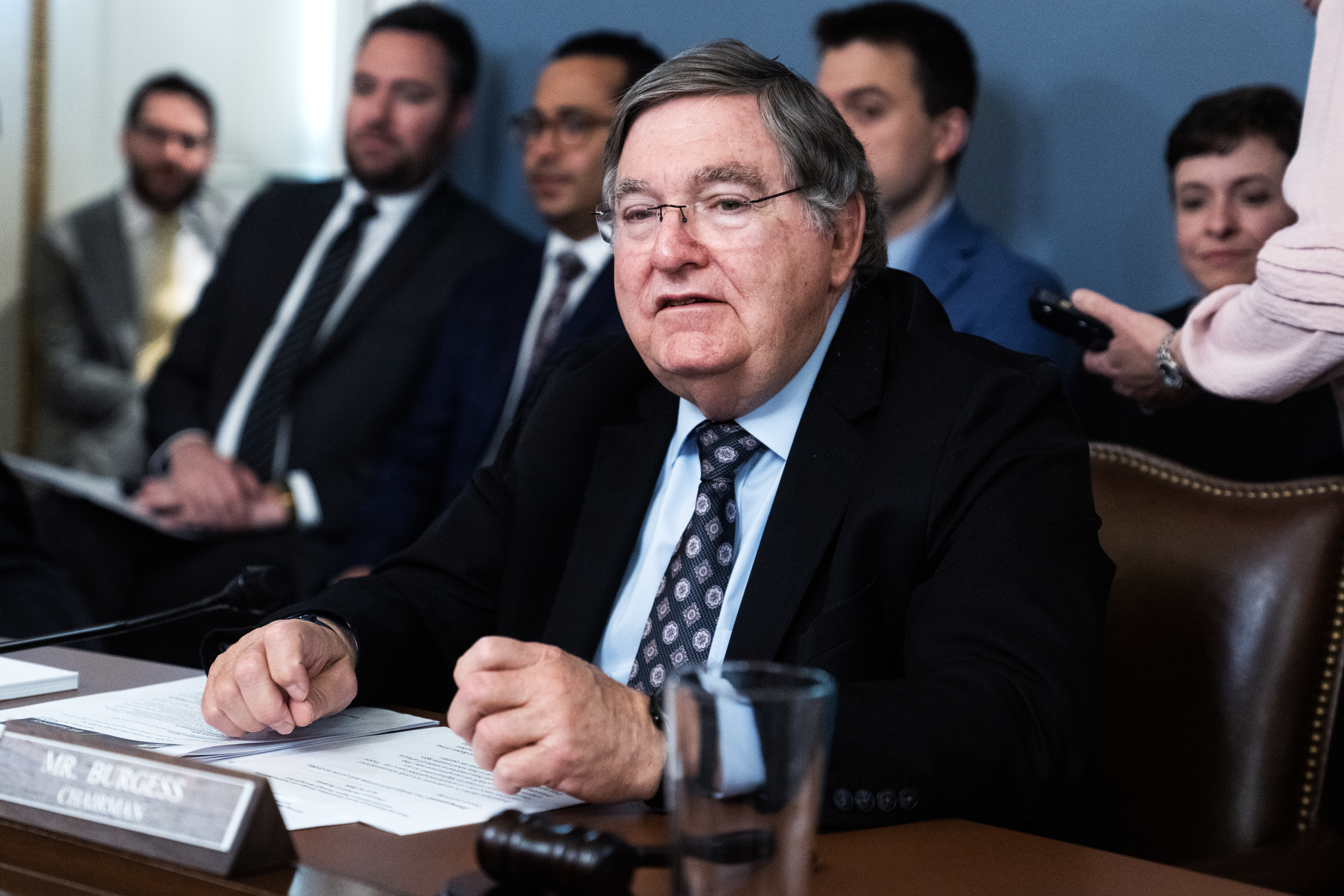The contest to fill the vacancy left by the lightning downfall of Rep. Eric Cantor narrowed on Thursday as Rep. Jeb Hensarling said he will not run for Cantor's vacated post as House majority leader.
The decision by Hensarling, R-Texas, came as congressional Republicans continued sorting through the consequences of Cantor's unexpected demise. They were also weighing how to balance their sometimes-warring factions of establishment and conservative Republicans, and whether they needed to give more clout to lawmakers from the South and GOP-dominated states.
Cantor, a Virginian, announced Wednesday he would step down as No. 2 House GOP leader, a day after a revolt by voters in his conservative district led to his defeat in a party primary by an unknown, underfunded opponent. The victor, economics professor Dave Brat, had local tea party support.
In a written statement, Hensarling, who chairs the House Financial Services Committee, said he was "humbled by the calls, emails, and conversations from my colleagues encouraging me" to run. But he added, "After prayerful reflection, I have come to the conclusion that this is not the right office at the right time for me and my family."
Local
The latest news from around North Texas.
Hensarling's decision leaves two candidates vying for the majority leader job: his fellow Texas Republican, Rep. Pete Sessions, and Rep. Kevin McCarthy, R-Calif. Sessions is chairman of the House Rules Committee, while McCarthy is currently GOP whip, the No. 3 House Republican.
Asked whether he would endorse McCarthy in that race, House Speaker John Boehner sidestepped the question, saying, "I can work with whoever gets elected."
Boehner also rebuffed suggestions that Cantor's defeat delivered a message to Republicans about immigration. Though Cantor has been an adamant opponent of a broad overhaul of immigration laws -- such as the bipartisan bill approved last year by the Senate -- Brat accused him of being open to amnesty to immigrants in the U.S. illegally.
"We don't know that is the issue or was the issue in the election," Boehner said.
Even as the majority leader race narrowed, the contest to replace McCarthy as whip expanded as Rep. Marlin Stutzman, R-Ind., entered that contest.
Already seeking that post were Reps. Peter Roskam, R-Ill., who has been chief deputy whip, and Rep. Steve Scalise, R-La. Scalise is head of the Republican Study Committee, the organization representing conservative GOP lawmakers.
Several dynamics will influence next Thursday's leadership elections, including efforts by conservatives and lawmakers from Republican-dominated states to boost one of their own into one of the top posts. Currently all four top GOP leaders are from states President Barack Obama carried in 2012: Ohio, Virginia, California and Washington state.
McCarthy supporter Rep. Marsha Blackburn, R-Tenn., said she'd support Scalise for whip. Hensarling is seen as being more conservative than McCarthy and Sessions, and Blackburn said that made it important for Scalise to prevail. "He has the right philosophical understanding of the issues," Blackburn said. "He's from the South. We need to see more Southerners at the leadership table to bring that regional balance that is lacking."
Neither Sessions nor McCarthy wasted time contacting colleagues and trying to line up support. McCarthy has been relying on his network of deputy whips while Sessions has been helped by the 24 GOP members of the Texas congressional delegation, one of the House's largest state contingents.
Before Hensarling dropped out of the race, Texas GOP lawmakers met Wednesday to try persuading him or Sessions to drop out so the delegation could unite behind one candidate, members of the delegation had said.
Rep. Frank Lucas, R-Okla., said the Texans had moved too slowly in a contest in which even a day is too much time.
Lucas said McCarthy was button-holing members on Wednesday, saying, "`I watched him in a very aggressive fashion work the floor yesterday" during votes. "I think there's a strong argument for continuity there. I think what happened really relates to the district not the politics of the conference."
Cantor leaves his job July 31.



